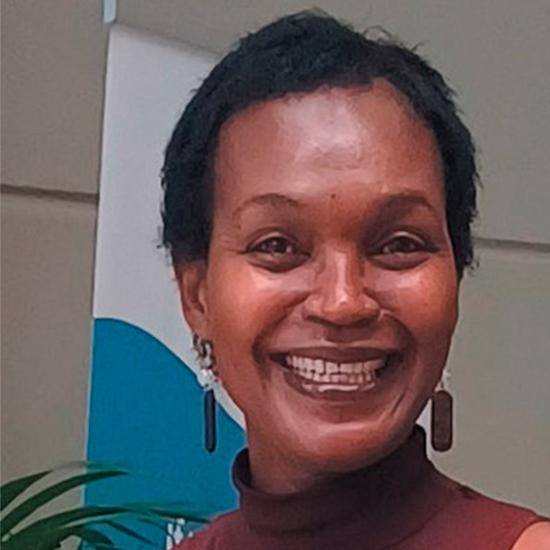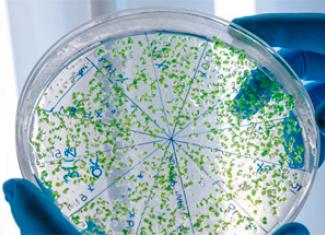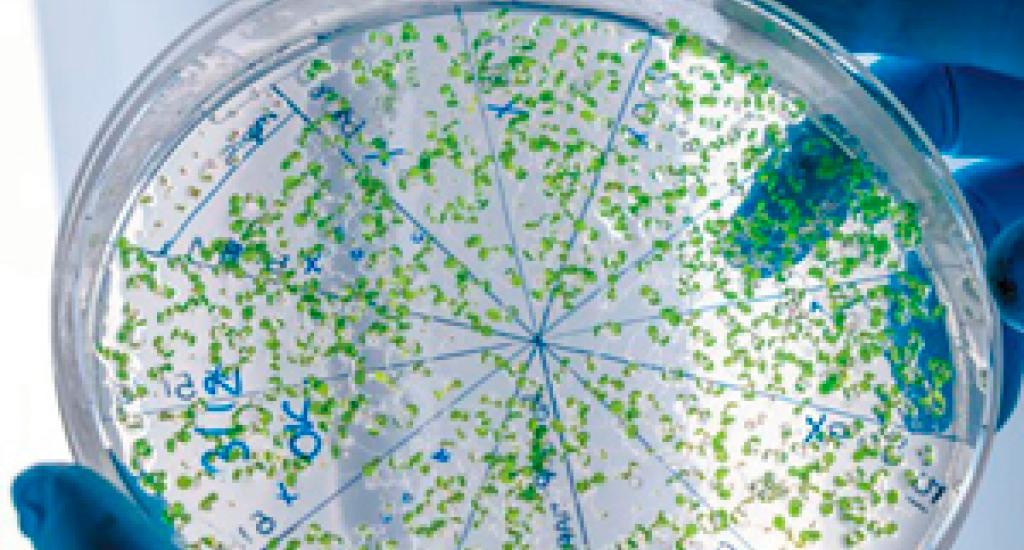Impacting
public health through research

Dr Awelani Mutshembele is passionate about making tangible impact on public health through research. Her research drives the creation of informed public health policies and improved diagnostic and treatment strategies.
As South Africa joins the world to commemorate the annual World TB Day on 24 March, Public Sector Manager magazine interviewed Mutshembele, who works as a Specialist Scientist at the South African Medical Research Council-Office of AIDS and TB (SAMRC-OATB).
Each year, countries across the globe commemorate World TB Day to raise public awareness about the devastating health, social and economic consequences of tuberculosis (TB) and to step up efforts to end the global TB epidemic.
As part of raising public awareness, Mutshembele uses various platforms such as webinars and conferences to share information, including new research findings to inform the public about developments in the fight against TB.
The useful information that she exchanges with fellow scientists at such platforms also influences public health policies, based on research findings.
“We need to make sure that people are aware of TB. The SAMRC participates in community outreach programmes where we engage with the public and educate them more about diseases, including TB. We encourage citizens to also go for health screening or visit local clinics so that they can be diagnosed early and start treatment as soon as possible,” she explained.
In her current role as a specialist scientist, Mutshembele is an expert in microbiology, molecular biology, bioinformatics, and public health.
Her work focuses mainly on antimicrobial resistance (AMR) in pathogens like HIV, mycobacterium TB (MTB), pseudomonas aeruginosa, escherichia coli, and Klebsiella pneumoniae. Simply put, her research focuses on why people become resistant to treatment or drugs that are used to manage diseases or infections.
Studying lineages
Mutshembele joined the SAMRC as an Intramural Postdoctoral Research Fellow in 2018, and most of her work focused on bioinformatics and molecular biology.
At the time, she was part of a group that conducted research on TB and they wanted to understand why other people become drug resistant. She wanted to specialise in studying lineages because she believes that medication is not manufactured to best suit all types of humans.
“For example, most of the medicine is manufactured in Europe, and Africans who have different lineages compared to the Europeans are also using the same medication, so I wanted to discover if the AMR could also be a result of that. I am of the view that we can have certain medications that are tailored for people with African lineages,” she said.
From the research, she said one significant finding involves identical lineage independent genetic markers associated with multi-drug resistance in MTB, which could facilitate more targeted diagnosis in treatment strategies.
Utilising AI
While some professional industries may be negatively affected by artificial intelligence (AI), in the scientific world, this is rapidly transforming research practices by enabling scientists to analyse
massive datasets, generate new hypotheses, design experiments and interpret results at an unprecedented scale.
Mutshembele said AI allows scientists to come up with innovative ways to speed up scientific processes so that they can identify whether the patient’s genes show a possibility of resisting medication or not.
“This will help us to identify which patients should not receive certain medications because they have a marker that indicates resistance to medication. For patients whose genes are likely to resist medication, the solution is to target various alternative medications,” she explained.
Through international initiatives such as the East Africa AMR-STOP programme, the UK-Africa Consortium for AMR Surveillance, and the BRICS Multilateral Joint Science and Technology Research Collaboration, Mutshembele investigates the distribution of resistance genes and contributes to the development of computational models and AI tools for predicting AMR trends.
Among projects that she is currently working on, which makes it hard for her to pick one as a highlight of her career so far, she is a Principal Investigator in a study that she is conducting alongside international scientists from Brazil, Russia and India.
This study started in 2023, and it needs to be completed by 2026, and it was made possible by a grant funding from BRICS.
“The project aims to develop a prototype antimicrobial drug derived from plant compounds of the Piper genus to combat antibiotic-resistant bacterial pathogens listed as critical by the World Health Organization, such as escherichia coli, klebsiella pneumoniae, pseudomonas aeruginosa, and MTB,” she explained.
“The research will identify molecular targets of these compounds, optimise their antimicrobial properties using computational modelling, and evaluate their efficacy through laboratory and animal studies. The expected outcomes include the discovery of novel therapeutic agents, patent registration, and publication in peer-reviewed journals,” she added.
International collaboration
Additionally, the project will strengthen collaboration between BRICS countries, fostering scientific innovation, capacity building and technology transfer.
“This research has significant public health implications, as it aims to provide new treatment options for drug-resistant infections, ultimately helping to reduce morbidity and mortality caused by AMR pathogens,” she said.
In December 2024, Mutshembele and her colleagues received another grant from the National Institutes of Health for a project that focuses on strengthening the UK-Africa consortium for AMR surveillance in the Lake Victoria Basin, involving South Africa, Kenya, Tanzania, Burundi and Ghana.
She said the project builds on a prior Global Challenges Research Fund pilot study that revealed high levels of antibiotic residues, antimicrobial resistance genes, and bacterial contamination in drinking water.
“The study will address critical public health concerns by investigating the sources and spread of AMR, assessing the effectiveness of wastewater treatment systems, and engaging local communities through awareness programmes,” Mutshembele explained.
Its key objectives include establishing a comprehensive AMR surveillance system, evaluating the cost-effectiveness of interventions, and developing sustainable strategies to mitigate AMR in the environment.
The project's findings will sup- port evidence-based policymaking, improve access to clean water, and contribute to achieving the United Nations Sustainable Development Goals on Health and Wellbeing, and Clean Water and Sanitation.
Mutshembele holds a Master’s Degree in Microbiology from the University of Venda and a PhD in Zoology from the University of the Free State. Her PhD studies specialised in Molecular Veterinary Parasitology.
She recently completed a Post Graduate Diploma in Public Health at the University of Pretoria, which has strengthened her expertise in public health and epidemiology.
Beyond her scientific contributions, she mentors young African researchers and promotes gender equity in science.
Her work enhances the country's ability to combat AMR, strengthens surveillance systems, and fosters international collaboration, significantly benefiting public health, scientific advancement and capacity development.




